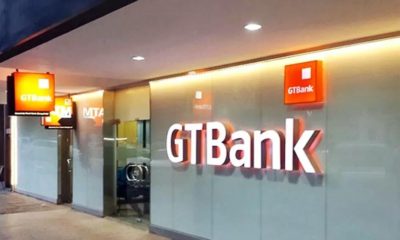Technology
Nigeria Records Massive Increase in Data Breaches in Q1 of 2023

Fintech
US Continues to dominate Global FinTech Landscape in Q3 2024, Witnesses Funding of $2.7B
E-commerce
South Africa, Tunisia Record Job Losses as Jumia Shuts Down Outlets Over Diminishing Returns, Hopes on Nigeria, Others
Telecommunications
MTN, Telecom Firms Urge Government Support for Tariff Hike Amid Economic Downturn
-

 Naira4 weeks ago
Naira4 weeks agoDollar to Naira Black Market Exchange Rate Today 24th, September 2024
-

 News3 weeks ago
News3 weeks agoBbnaija’s Wanni Wins Innoson Car Challenge, Secures First Vehicle with Twin Sister
-

 Education4 weeks ago
Education4 weeks agoFederal Government Approves 133% Allowance Boost for NYSC Members, Now ₦77,000
-

 Social Media4 weeks ago
Social Media4 weeks agoTelegram to Expose Users Who Use Platform For Criminal Activities, Share Data With Relevant Authorities
-

 Technology4 weeks ago
Technology4 weeks agoNokia Partners With Zain Iraq to Boost Network Capacity With Advanced Microwave Technology
-

 Investment4 weeks ago
Investment4 weeks agoCoca-Cola $1billion Investment: Manufacturers Association Shares Two Cent
-

 Dividends4 weeks ago
Dividends4 weeks agoAccess Holdings to Pay N15.99 Billion Interim Dividend, Aig-Imoukhuede to Receive N1.151 Billion
-

 Economy4 weeks ago
Economy4 weeks agoFG Awards N158bn Lekki Port Service Lanes Construction to Dangote

























